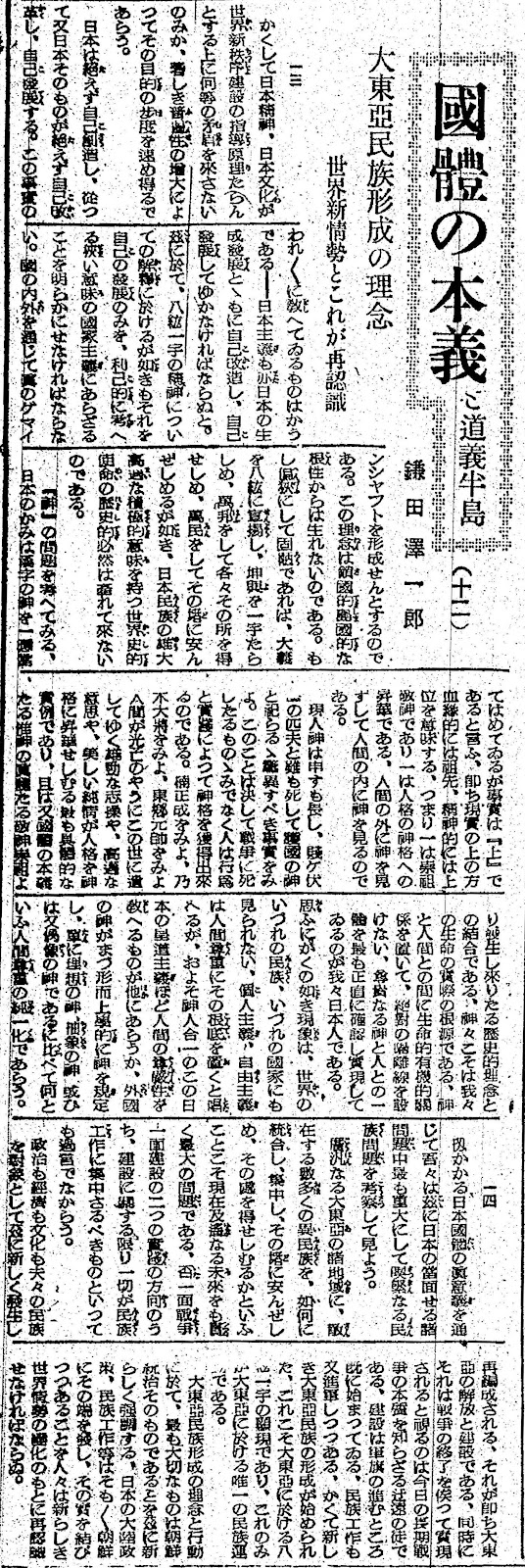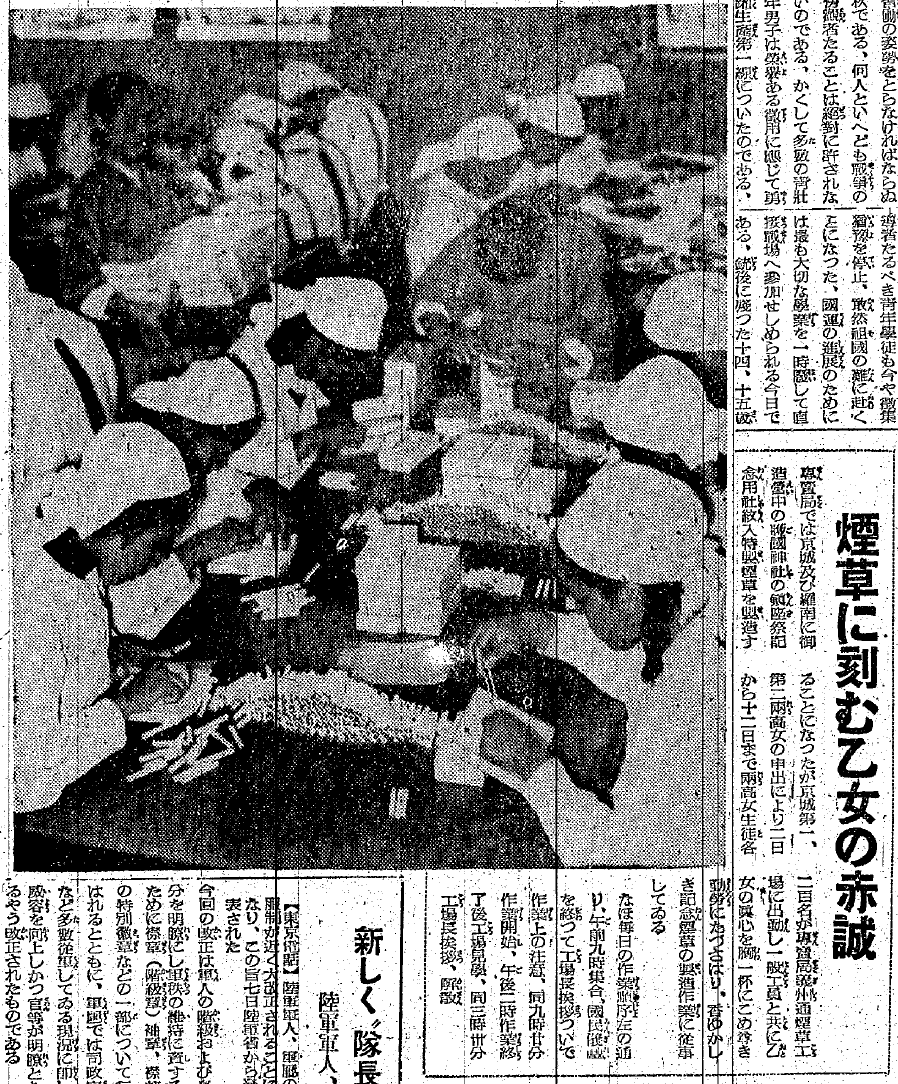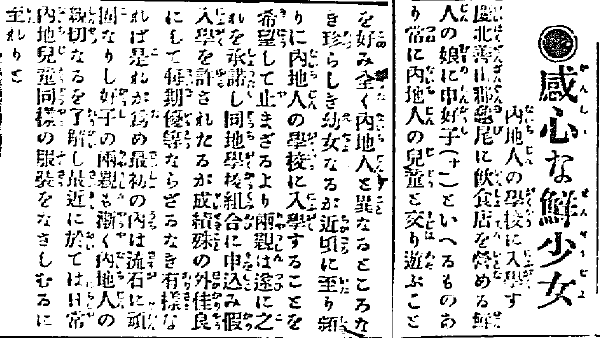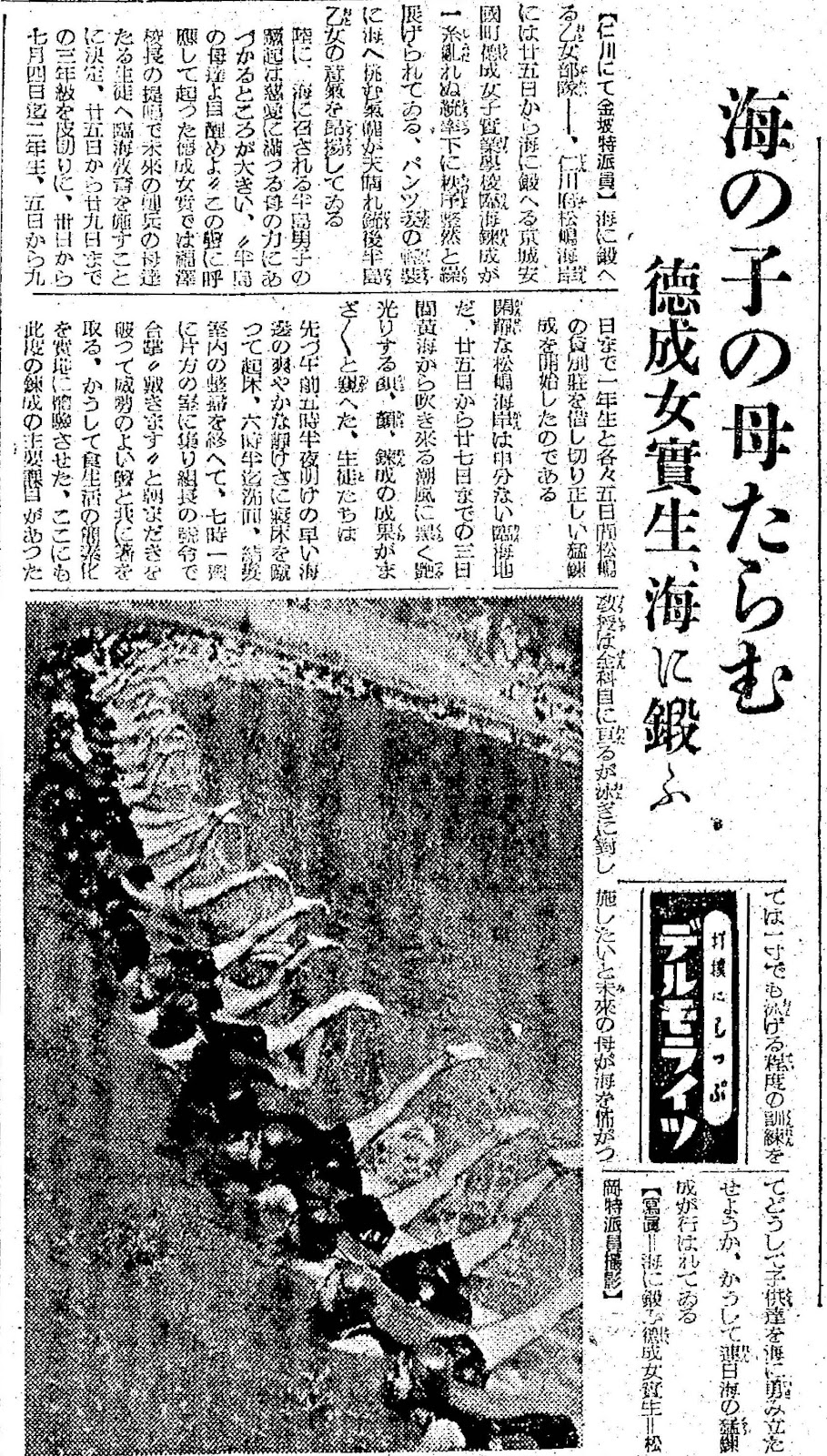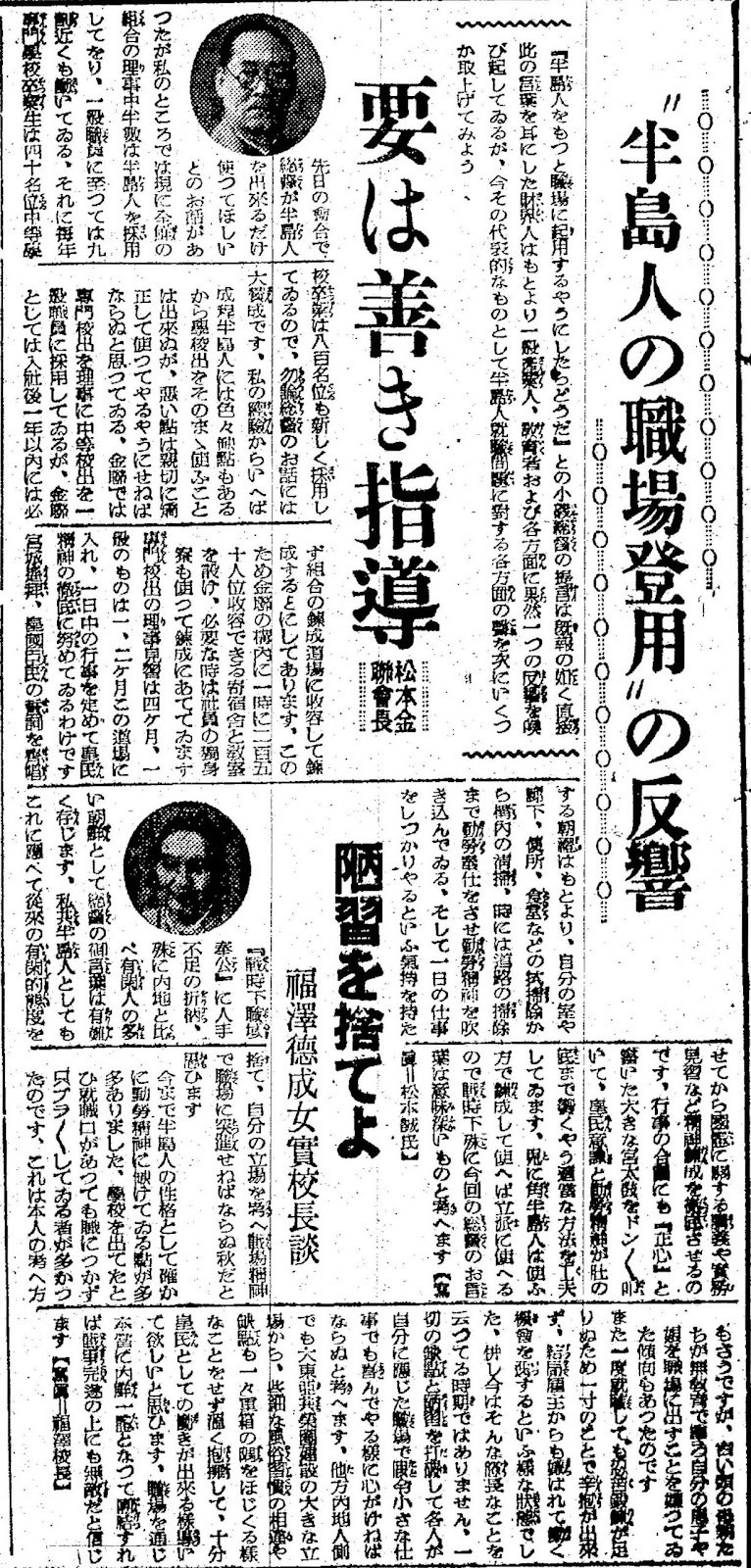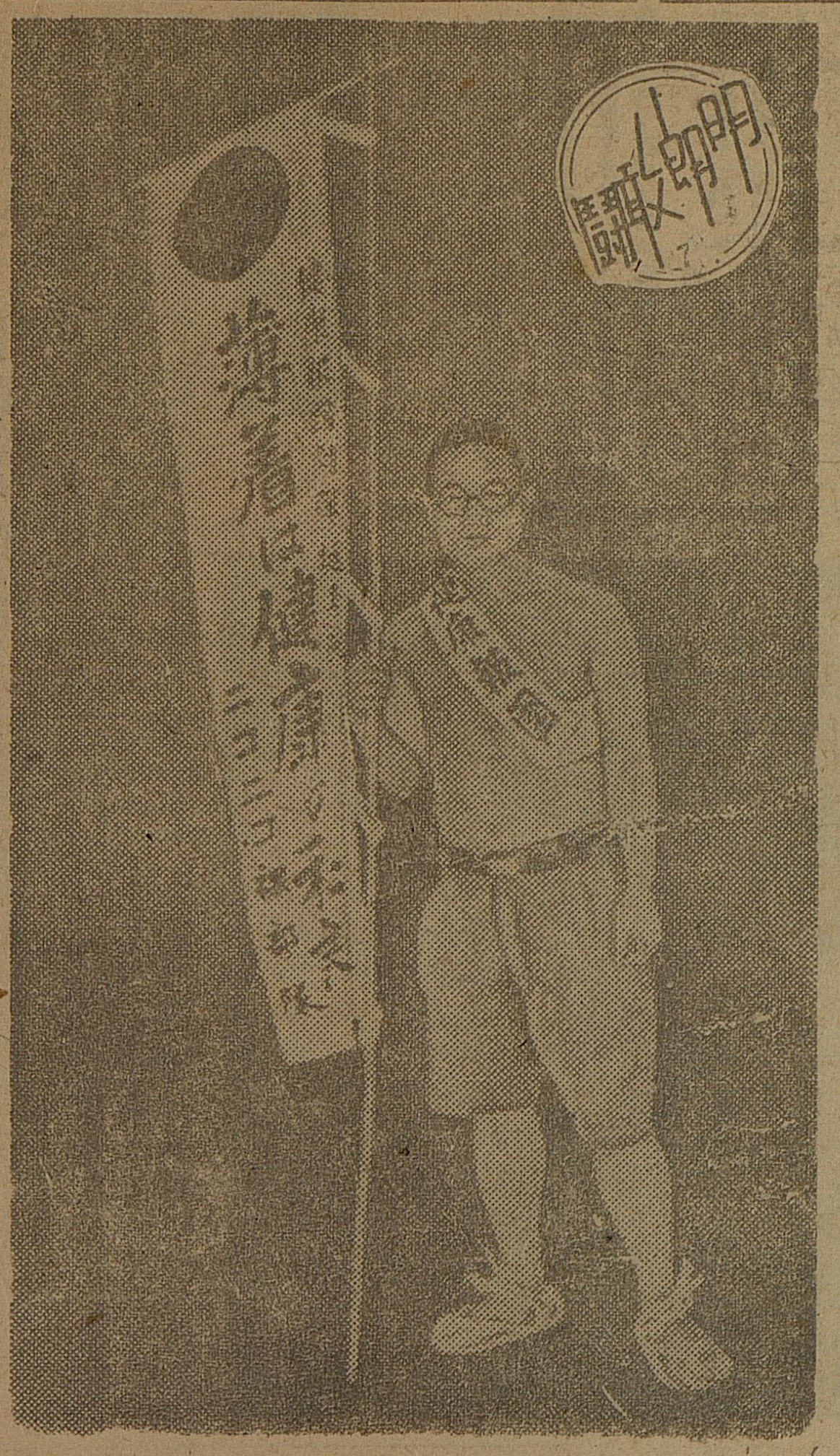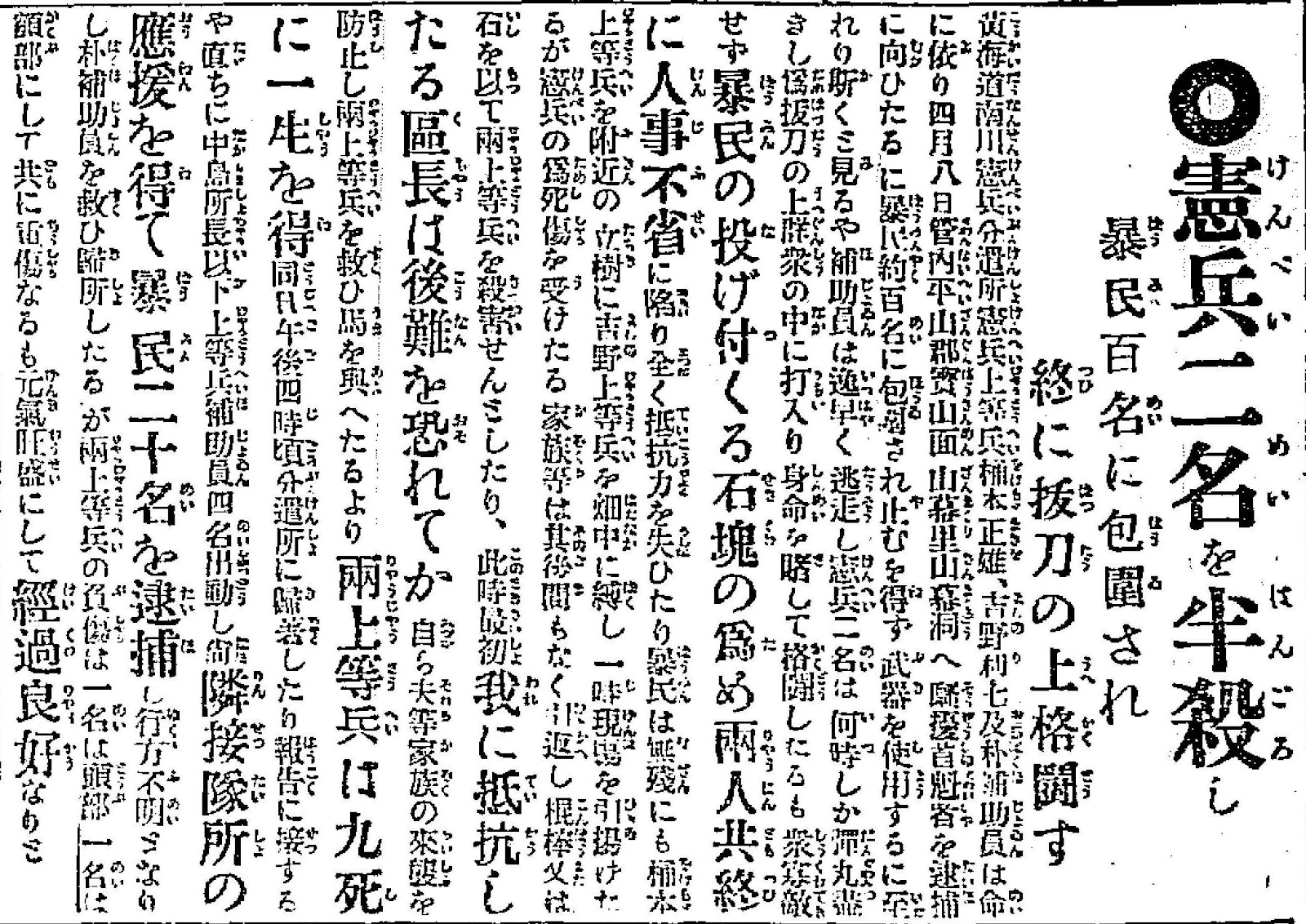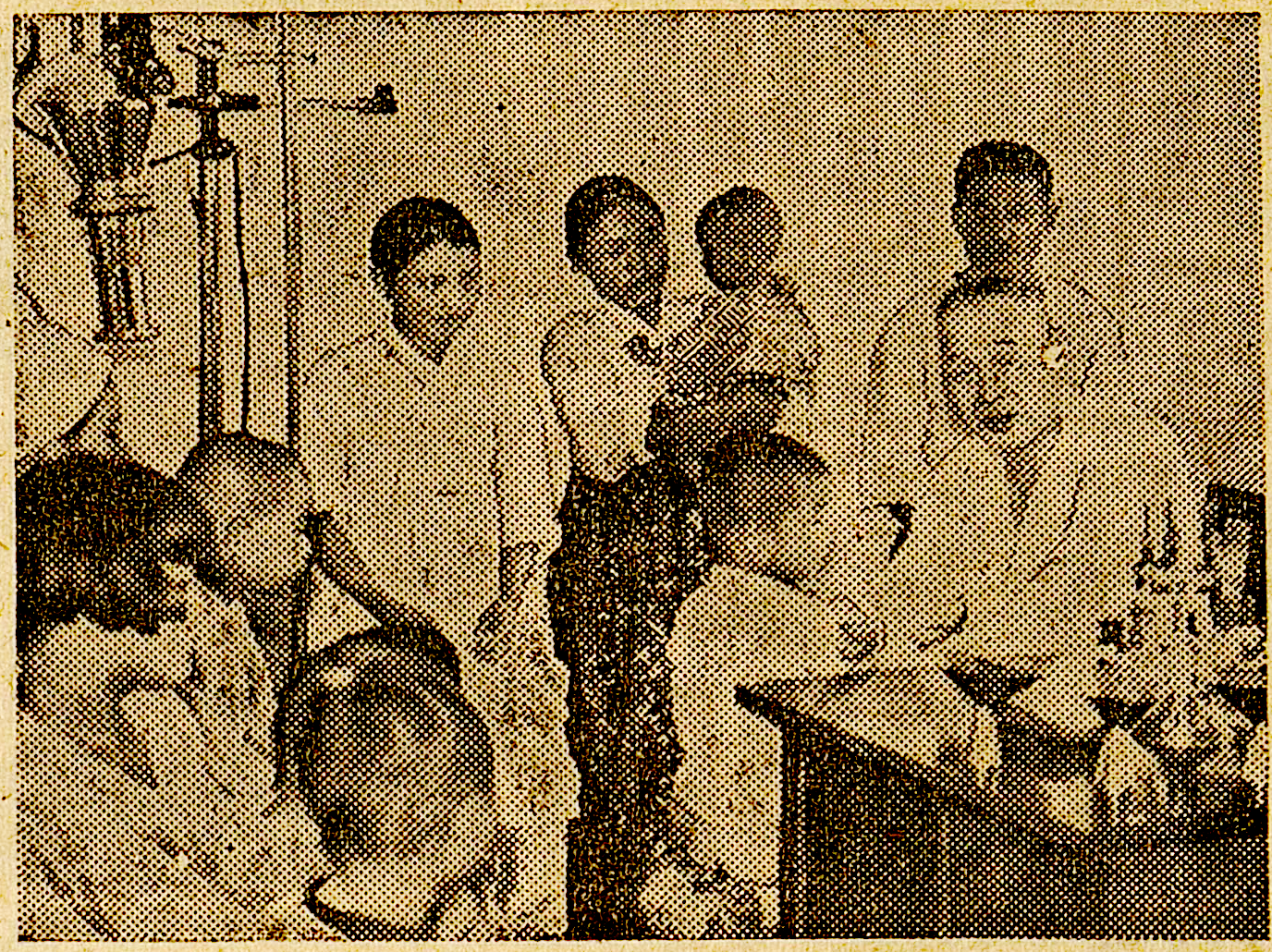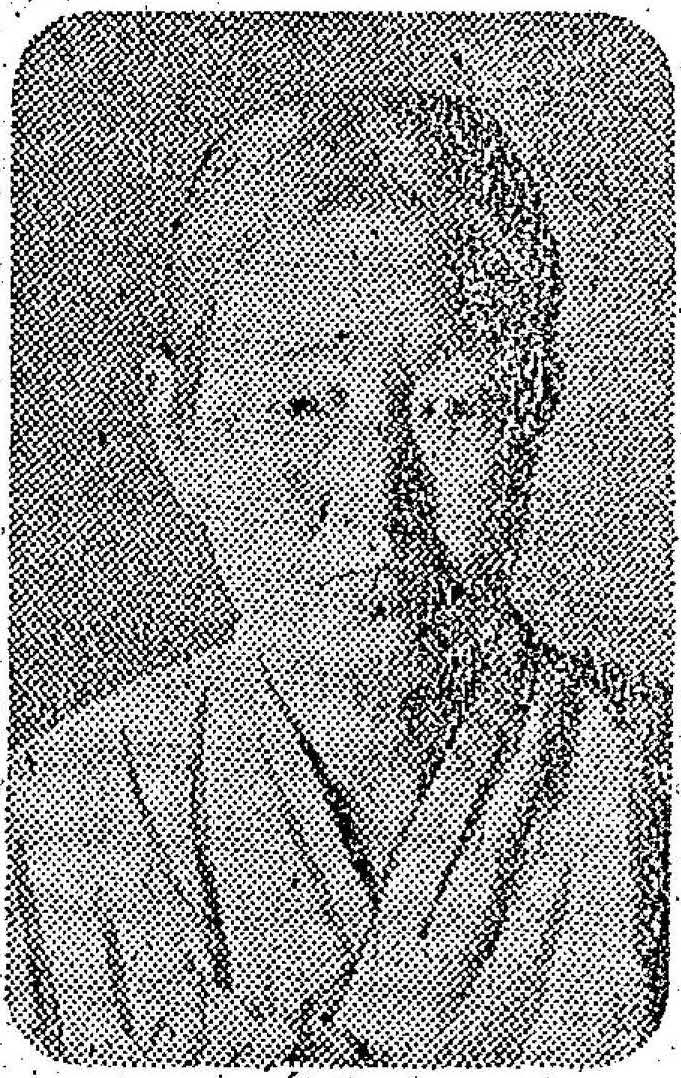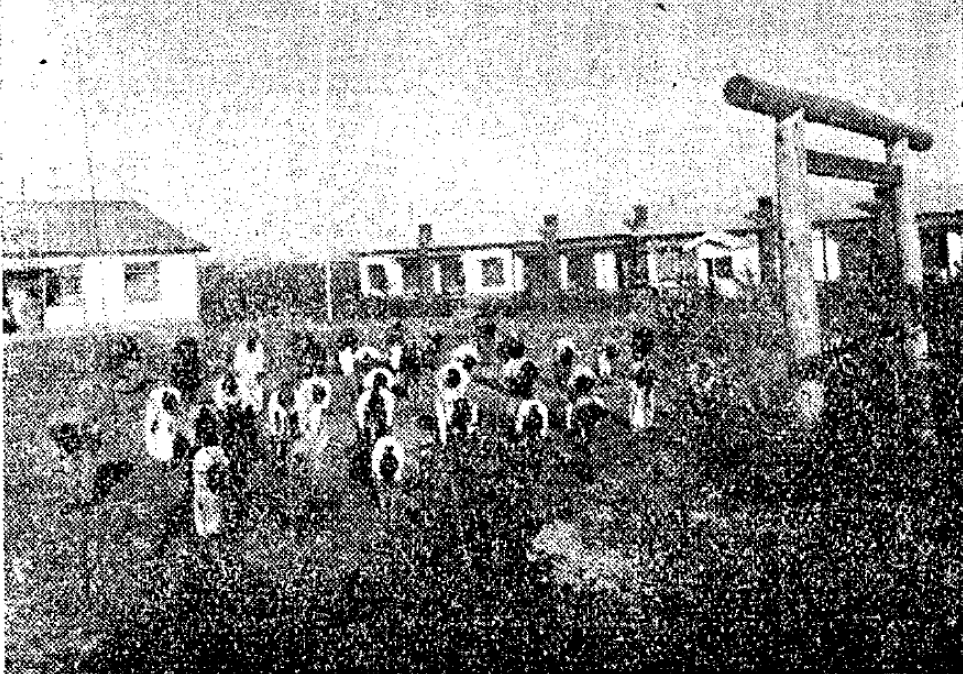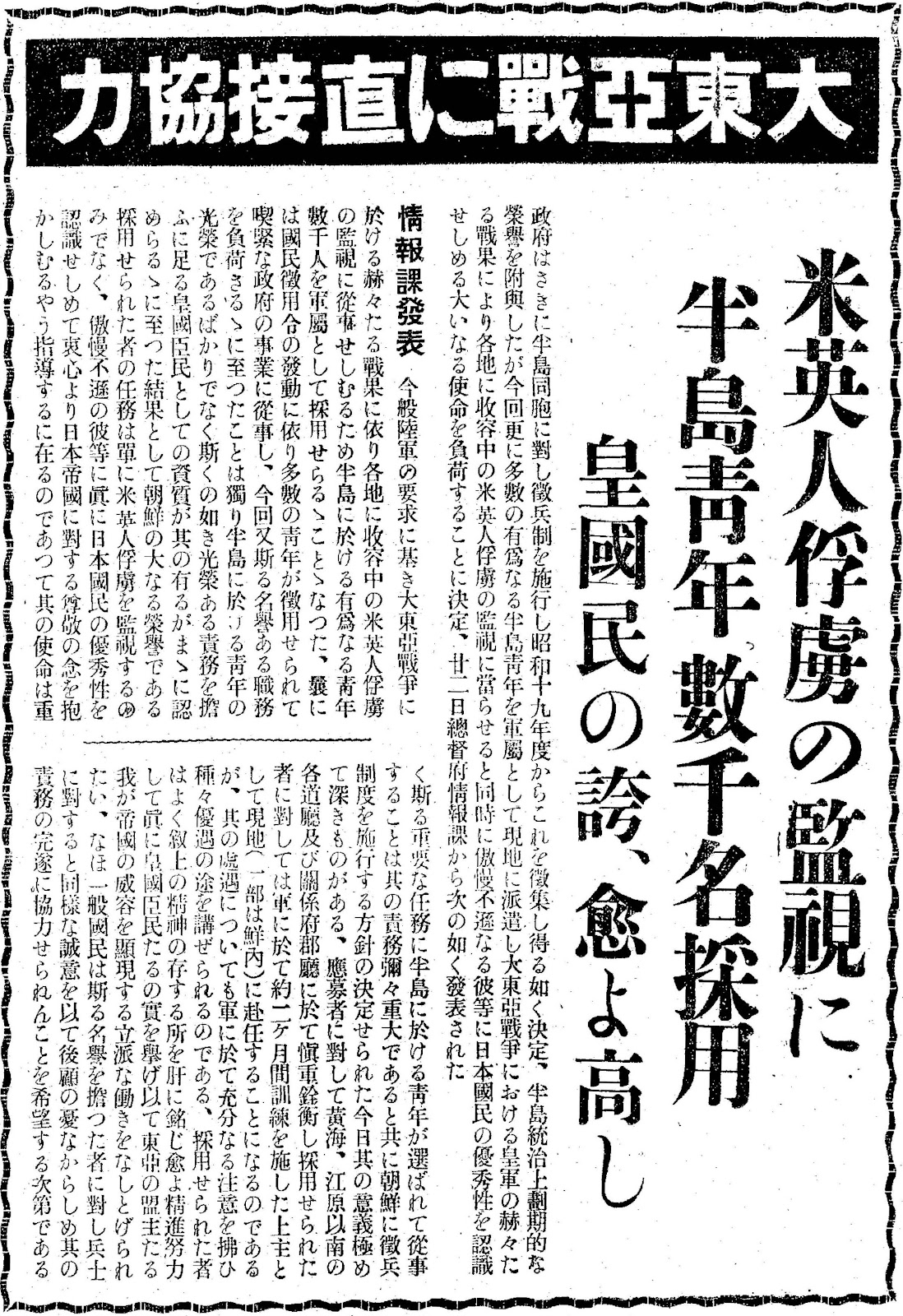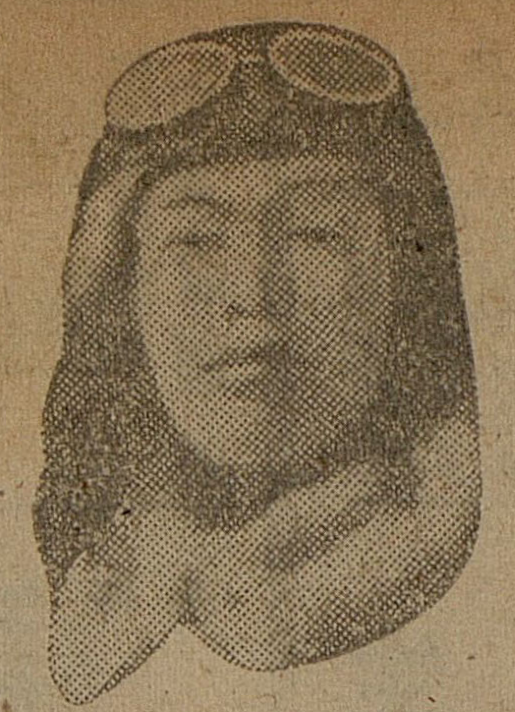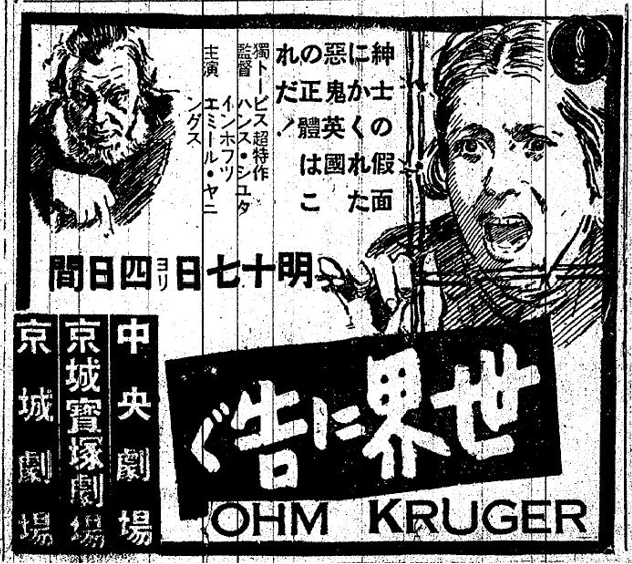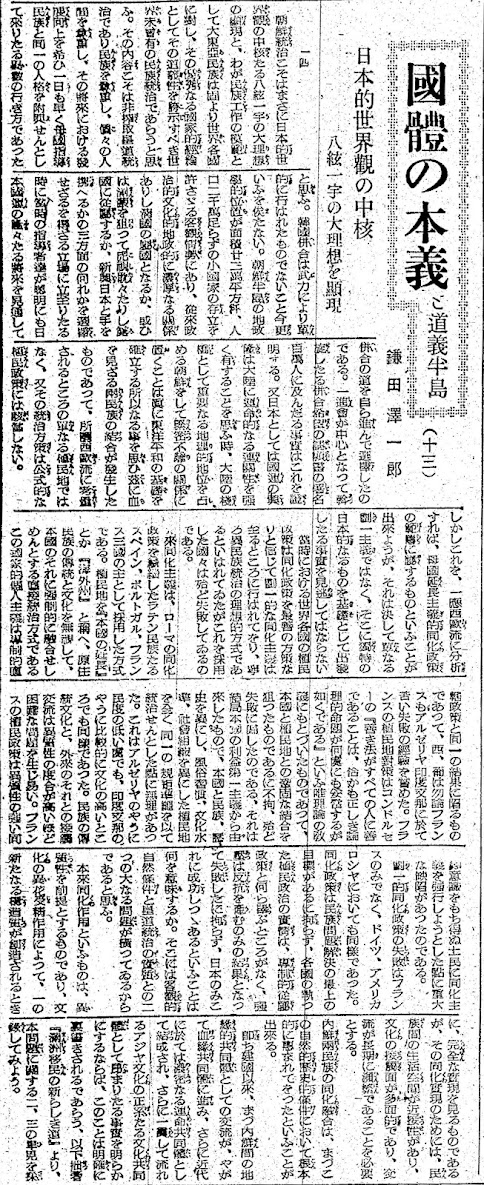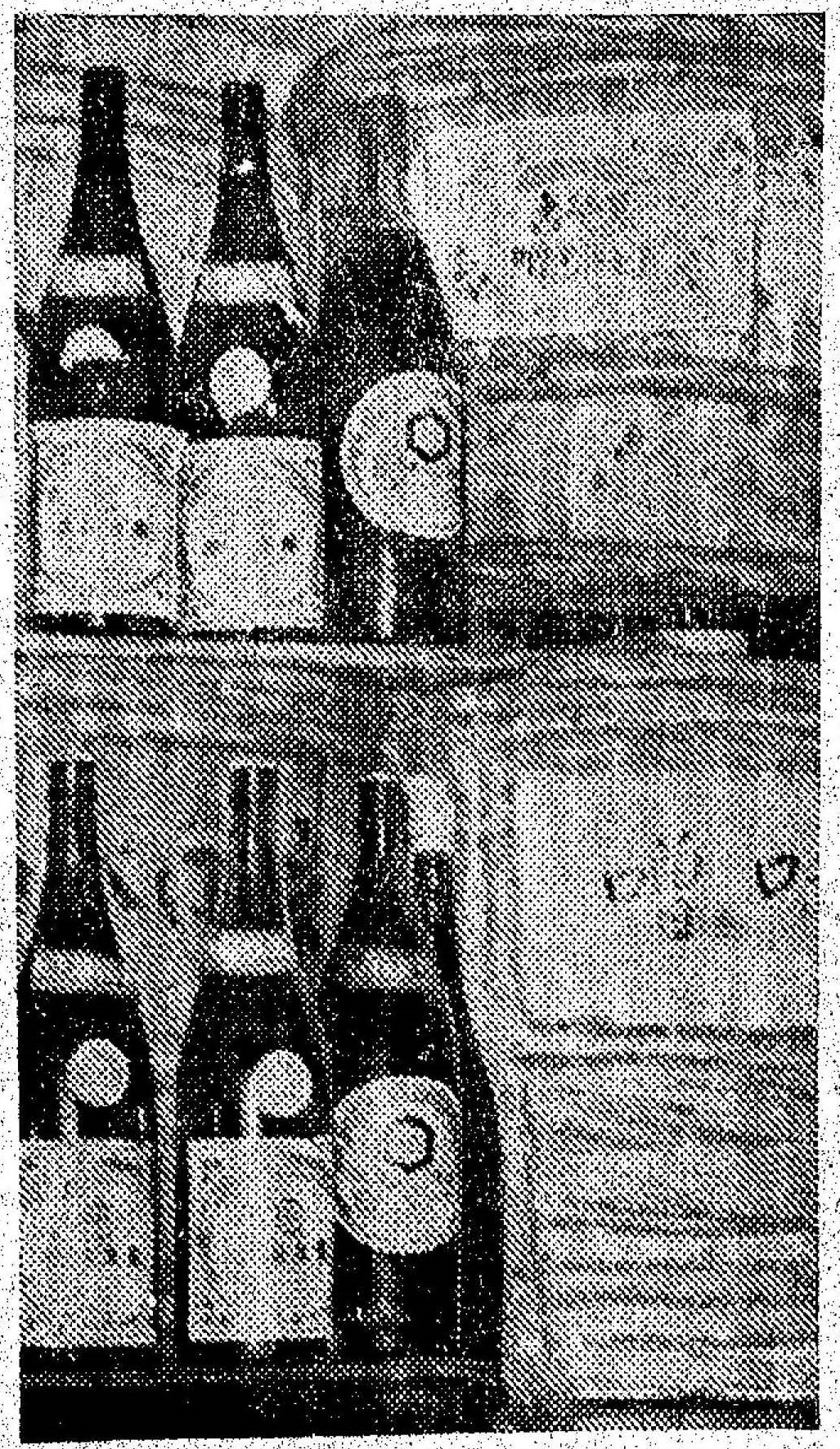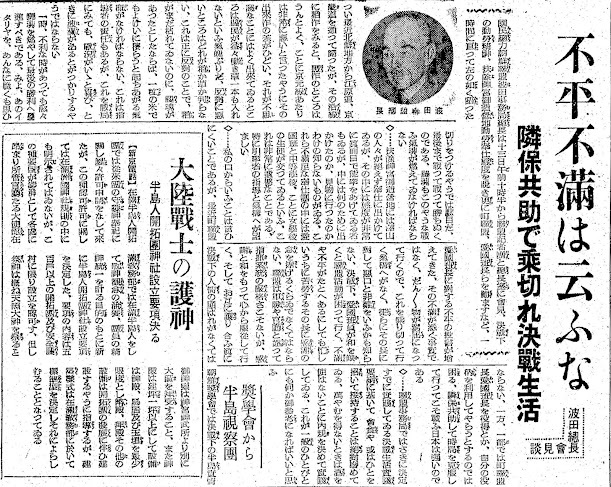
Angry Koreans filed numerous complaints against local Imperial Japanese party officials for abuse of power, only to be told publicly by General Secretary Hada to stop complaining and obey their patriotic group leaders with harmony and gratitude for their leaders’ hard work (Chungcheongnam-do, 1943)
This is my translation and transcription of a news article from Keijo Nippo, a propaganda newspaper and mouthpiece of the government of Japan-colonized Korea. This has never been republished or translated before, to the best of my knowledge.
I found this article very interesting, since it is very rare to find a Keijo Nippo article which says anything negative about the leaders of the single ruling party of Japan-colonized Korea: the Korean Federation of National Power (国民総力朝鮮連盟, 국민총력조선연맹).
Yet here was General Secretary Hada of the party mentioning that many complaints were filed against town-level party leaders, presumably for too much dining and entertainment. This would have been extremely tone-deaf and inappropriate in 1943 amid total war against the US as food shortages were becoming severe. The fact that Hada had to address this issue publicly in the national newspaper suggests to me that the complaints were becoming too loud for him to ignore, and public discontent against colonial rule in Korea was bubbling to the surface.
This article mentions Fuyo Shrine, which was a Shinto shrine that was still under construction in Chungcheongnam-do by the time World War II ended in 1945, and was eventually torn down.
(Translation)
Gyeongseong Ilbo (Keijo Nippo) September 14, 1943
Don’t say any complaints or grievances!
Get through the war with collective mutual aid
Interview with General Secretary Hada
[Photo: Federation General Secretary Hada]
General Secretary Hada of the Korean Federation of National Power met with Federation reporters at 10:30 a.m. on the 13th in his office. He spoke for an hour about the spirit of work under the war and his attitude toward labor service at the Fuyo Shrine construction site, and also encouraged the leaders of the patriotic groups.
He said, “I recently returned from the northern Korean regions via Gangwon-do and Gyeonggi-do, and when I looked at the rice crop along these routes, I found that the areas with good harvests were much better, while the areas around the Gyeongwon line were very bad. The strange thing was that in the areas where the rice production was good, the farmers worked hard and did not put in even a single blade of grass.
On the other hand, in the bad areas, it was hard to tell the rice stalks apart from the grass. This was exactly the opposite situation from the areas where the rice production was good. If the rice is not yet dead, but the farmers have the spirit of agriculture, they must be willing to harvest even one extra grain of rice. This is partly the responsibility of the leaders, but looking at the war, we shouldn’t easily shift from joy when the war is going well to disappointment in tumultuous times.
Even when the war is temporarily disadvantageous for us, we must redouble our fighting spirit and rush to the final victory. Look at the example of poor Italy. Even though they are so weak, it was wrong for them to give up. We must fight and fight to the end and win. The agricultural spirit must also have this kind of fighting spirit burning within.
◇… There are many people who constantly go to the Fuyo Shrine construction site to serve, and some of them are very serious and efficient, but others do not know why they are there or do not know whether they have come to do some sightseeing. Among these unsatisfactory service groups are the patriotic groups and students from secondary schools, especially girls’ schools. This is extremely regrettable. Proper guidance and attitudes of the leaders are especially desired.
◇… It is difficult for me to say this, but recently I have received an increasing number of letters of complaint against the town-level leaders of the patriotic groups of the Federation. The complaints are not entirely true. It could be that they are being needlessly criticized and spoken ill of as supplies become tighter, and the complainers have no mental preparedness to overcome this situation. If the patriotic group members are not in harmony during decisive battles, then the activities of the Federation will be in trouble. Even if they have complaints or grievances, they should at least be grateful to the leader of the patriotic group for his hard work while he is busy. Unlike the Army or government offices, the Federation does not have a strict chain of command, but we must obey each other wholeheartedly with gratitude and harmony. There needs to be a manifestation of true kindness in the midst of war in which people yield to one another. On the other hand, it is not good if the town-level leader of the patriotic group of the Federation tries to take advantage of his privileges or position of power. Japan will be strong only if we can overcome the current situation by collective mutual aid.
◇… The Federation Secretariat has decided to absolutely forbid the use of meals or invitations to entertain others in accordance with the Practical Guidelines for Decisive Battle Lifestyle that we have already put into practice. If it is necessary and unavoidable, we have set an internal rule not to use alcoholic beverages. I hope this will be of some help to the general public.”
Guardian deity for continental warriors
Guidelines for establishing shrines for Korean settler communities
The Korean Settlers’ Organization in Manchuria has often applied for permission to dedicate a shrine to the group’s guardian deity, and although this type of permission is not explicitly stated in the Shrine Regulations of Manchuria, the requests for this type of permission have grown so strong that the Embassy’s Department of Education in Manchuria, the competent authority, has decided on new shrine establishment guidelines for the Korean Settlers’ Organization, with the aim of fostering a sense of reverence for the gods and spiritual unity among the settlers.
The guidelines state that only pioneer settlements with more than 500 houses and safe farming villages would be allowed to establish shrines. However, the deity to be worshiped shall be generally Amaterasu (Goddess of the Sun). The sacred spirit must be received with a Jingu Taima (exorcism stick), separately from the Jingu Jinmusho (Shrine of Emperor Jinmu). The temple shall have an area of at least 1 tsubo (1.5 square meters), and the facilities shall at least have a temple, torii gate, and tamagaki (fence surrounding the shrine). The hall of offerings, hall of worship, and other facilities shall be constructed in accordance with the development of the settlers’ group. A standardized construction style shall be determined in accordance with the Education Department of Manchuria.
Source: https://www.archive.org/details/kjnp-1943-09-14
(Transcription)
京城日報 1943年9月14日
不平不満は云うな
隣保共助で乗り切れ決戦生活
波田総長会見談
国民総力朝鮮聯盟波田事務局総長は十三日午前十時半から聯盟記者団と総長室に会見。決戦下の勤労精神、扶余神宮御造営地勤労奉仕態度を説き更に町聯盟、愛国班長らを励ますなど、一時間に亘って左の如く語った。
つい最近北鮮地方から江原道、京畿道を通って帰ったが、その沿線に稲作をみると、豊作のところはうんとよく、ことに京元線あたりは非常に悪いと言ったようにその出来作の差がひどい。それが不思議なことにはよく出来ているところは農民が益々働き草一本も入れないという気魄ぶりだ。
反対に悪いところはどれが稲か草か判らない。これは正に反対のことで、稲がまだ枯れていないのに、農魂があったとしたならば、一粒の米でもよけいに獲ろうと起ちあがる気概がなければならない。これは指導者の責任もあるが、これを戦局にみても、戦況がいいと喜び、ときに波瀾があるとがっかりするようではならない。
一時、不利な時があっても愈々闘魂を燃やして最後の勝利へ驀進すべきである。みよ、あのイタリアを、あんなに脆くも思い切りをつけるようでは駄目だ。最後まで戦って戦って勝ちぬくのである。農魂もこのような戦う気魂が燃えていなければならない。
◇...扶余神宮御造営地には沢山の人々が絶えず奉仕に出かけているが、その中には態度が非常に真面目で能率をあげている者もいるが、中には何のために出かけたのか、見物に行ったのかわけの知らないものがいる。これら不満足な奉仕団の中には愛国班と中等学校、ことに女学校の生徒が交っているという。これは非常に遺憾なことである。特に引率者の指導と気構えが望ましい。
◇...私の口からいうことは言いにくいことであるが、最近町聯盟愛国班長に対する不平の投書が増えてきた。その不満が悉く事実ではなく、だんだん物が窮屈になって行くので、これを乗り切って行く気構えがなく、徒にその長に対して悪口と非難をいうかも知らない。決戦下、愛国班員が和を欠くと聯盟活動が困って行く。不満や不平がたとえあるにしても忙しいうちに苦労するその長に感謝の念を捧げるくらいでなくてはならない。聯盟は軍隊や官庁と違って指揮系統の厳格さこそないが、感謝と和をもって心から服従して行く。そしてお互いに譲り合う真に決戦下の人情の顕われがなくてはならない。一方、一部では町聯盟長愛国班長を役得とか、自分の役柄を利用してやろうとするのでは困る。隣保共助して時局を克服して行ってこそ戦う日本は強いのである。
◇...聯盟事務局ではさきに決定すでに実践している決戦生活実践要綱に基づいて、会食や或いはひとを招いて接待することは絶対廃めている。万やむを得ないときは酒を使わないことに内規を決めて実践している。これが一般のひとびとにも何か御参考になればいいと思う。
大陸戦士の護神
半島人開拓団神社設立要項決める
【新京電話】在満半島人開拓団では従来団の守護神奉祀に関し屡々許可申請をなして来たが、この種認可許可に関しては在満州国神社規則の中にも明示されてはいないが、この種要望が澎湃として各處に昂まり所管官庁たる大使館在満教務部では在満半島人をして敬神観念の涵養、団員の精神統一を計る目的のもとに新に半島人開拓団神社設立要項を決定した。
要項の内容は五百戸以上の開拓団及び安全農村に限り設立を認可す。但し祭神は概ね天照大神を祭ること。御神霊は神宮神武所より別に大麻を拝受すること。また神殿は建坪一坪以上にして設備は神殿、鳥居及び玉垣を最小限度とし幣殿、拝殿その他の設備は開拓団の発展に伴い建設するように指導するが、建築様式は在満教務部に於いて標準型を決定し、それによらしむることとなっている。
